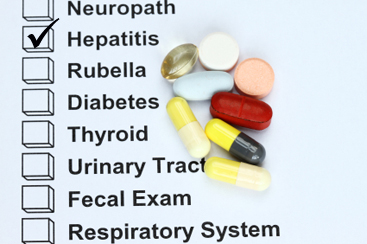|
|
| Why Care for Prisoner’s Healthcare? |
| By Carl ToersBijns, former deputy warden, ASPC Eyman, Florence AZ |
| Published: 10/29/2012 |
 A recent incident reported by a Phoenix investigative reporter, who received a tip from a prisoner’s family member about the wrongful use of a needle syringe inside a state prison, made the local mainstream news. The reporter revealed poor medical practices as far as “sharp controls” and demonstrated the critical need for needle control within our prisons to prevent exposures to infectious diseases.
A recent incident reported by a Phoenix investigative reporter, who received a tip from a prisoner’s family member about the wrongful use of a needle syringe inside a state prison, made the local mainstream news. The reporter revealed poor medical practices as far as “sharp controls” and demonstrated the critical need for needle control within our prisons to prevent exposures to infectious diseases.
This exposure to an infectious disease has been downplayed by the Arizona Corrections Department and only warranted a $ 10,000 dollar fine for not following sound medical standards related to syringe and needle control as well as the use of such instruments. It is exactly this type of lack of concern for the prisoner’s health that impacts our community’s health and public safety daily. The spread of infectious diseases among prisons impacts not just the prisoner but also the prison staff and the general public. The care for HIV, AIDS, Hepatitis and other infectious diseases within our prisons continues to suffer as our medical providers contracted with the state fail to meet their moral and legal responsibilities to treat prisoners in a timely, effective manner. The general public must know or should know that whatever happens or whoever lives or works behind prison walls and razor wire impacts our communities when the workers go home and when the prisoners are released. We owe it to the community, our families and our neighbors to protect them from infections by insisting the medical provider for our prison system adheres to and practices sound infectious disease education, prevention and intervention methods. The infection of a person not incarcerated and the infection of a person incarcerated should be the same and treated with the same priorities. There is a significant difference between the two persons that make it a critical concern to all and that is a person in prison does not have the access or ready means to seek self-protection and other preventive steps as those in the free world. The bottom line here is we must demand our government takes the appropriate steps to protect prisoners and prison officers alike for it is logical and reasonable to bring this matter to a logical conclusion that by protecting them, we protect society. Editor’s note: Carl ToersBijns (retired), worked in corrections for over 25 yrs He held positions of a Correctional Officer I, II, III [Captain] Chief of Security Mental Health Treatment Center – Program Director – Associate Warden - Deputy Warden of Administration & Operations. Carl’s prison philosophy is all about the safety of the public, staff and inmates, "I believe my strongest quality is that I create strategies that are practical, functional and cost effective." Other articles by ToersBijns: |
Comments:
Login to let us know what you think
MARKETPLACE search vendors | advanced search

IN CASE YOU MISSED IT
|


Have you been hurt in an accident in Waco Temple or Killeen? Our personal injury lawyers will review your claim to examine if there is enough evidence to support a lawsuit. You may be eligible to file a personal injury claim if you were involved in an accident that was caused by the negligence of someone else. Our slip and fall lawyer work with personal injury experts to understand how the accident has changed your life and what money you need to go forward.
WARDEN HOOD IS NO LONGER ASSOCIATED WITH PHARMAJET --- COMPANY MENTIONED IN THE ABOVE ARTICLE. BOB HOOD SENIOR EXECUTIVE SERVICE (SES-03) UNITED STATES DEPARTMENT OF JUSTICE
love good !
xin chao !
During the past 36 years I have worked in local, state, and federal correctional institutions (assigned as Warden in four locations). As this article points out, the wrongful use of needle syringes, lack of accountability, and overall danger to staff is real. Prisons are disease incubators. With more than 2.3 million Americans incarcerated, on any given year about 20 percent of those with HIV pass through our correctional system (nearly 2 percent of those in jails or prisons are HIV positive). The World Health Organization (WHO) estimates that 50% of the yearly 15 billion needle-syringe injections given are unsafe. In a prison setting every injection has the potential to impact staff safety. Eliminating needle-stick incidents, eliminating re-use, cutting the waste disposal costs (no hazardous sharps) should be the core value for correctional healthcare professionals. All prison staff should look forward to returning home to their families each and every day instead of worrying over a contraband needle attack. Technology is changing the way vaccines are delivered. Needle-free jet injection devices designed by PharmaJet eliminate many of the concerns addressed in this article. Correctional administrators trying to reduce contraband within their facilities should consider this option. Imaging working in a correctional environment without the daily fear of a needle assault. Have a safe day. Bob Hood Former Warden United States "Supermax" Penitentiary